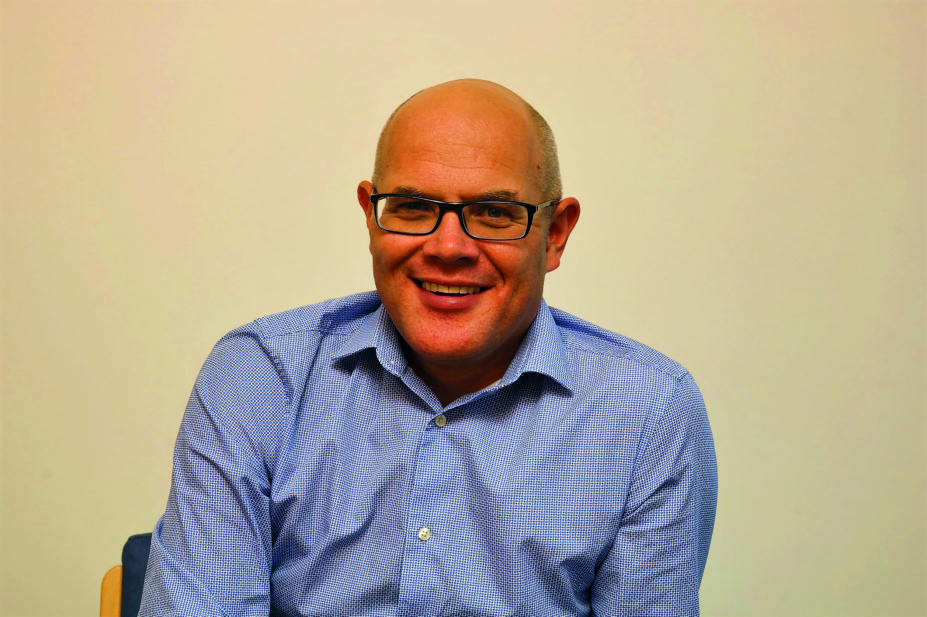
Courtesy of Rocco Hadland
Rocco Hadland is a heart failure specialist pharmacist at Wrexham Maelor Hospital, Betsi Cadwaladr University Health Board in North Wales.
How did you decide you wanted to be a pharmacist?
I have always had an interest in chemistry and previously worked in the analytical chemistry industry as a chemist; however, as the role was based in the laboratory, I found it very isolating. Consequently, I decided to retrain as a pharmacist in 2001 at Liverpool John Moores University, as this would allow me to interact with patients while using both my scientific and analytical skills.
How and why did you become a heart failure specialist?
I developed aspirations of becoming a heart failure specialist after attending pharmacist-run clinics while completing my clinical diploma training. I have always had an interest in cardiology because of its emphasis on evidence-based medicine, and when an opportunity arose to work with patients who had heart failure, I knew it was the role for me.
What are the responsibilities and typical tasks in your current role?
My clinical responsibilities involve the running of outpatient and community clinics, where I review patients with heart failure and optimise their therapy using the principles of evidence-based medicine. The types of patients I review include those experiencing worsening heart failure symptoms who need their diuretic treatment doses adjusted appropriately. The clinic appointments might also involve undertaking medication reviews or counselling patients with lifestyle advice. I also handle calls from patients experiencing a deterioration in symptoms via a virtual/telephone clinic; follow up on inpatients who have recently undergone medication titration; and chase blood results. I am also responsible for maintaining and developing new prescribing protocols and clinical governance relating to non-medical prescribers within the heart failure service.
I work closely with nursing colleagues within the multi-disciplinary heart failure team which has helped develop my holistic approach to delivering pharmaceutical care. It has also highlighted the importance of building on the patient’s understanding of their condition to improve adherence to complicated medication regimens.
What aspects of your job do you enjoy the most?
Helping patients to make sense of a serious and complex long-term condition is the most interesting part of my role. I try to get a sense of what they understand is the problem with their heart and explain the consequences/symptoms that could arise as a result of the damage, and how this is treated and prevented. In some cases, patients may require up to five different medications essential for prognostic and symptom control.
My role has also provided me with amazing opportunities, such as completing my MSc in clinical pharmacy, and presenting my research findings at the World Heart Failure Conference held in Paris, in April this year. My research examined the benefits of pharmacist-led screening of patients who present with heart failure symptoms in the community. This novel approach identified patients who may not have had a formal diagnosis of heart failure despite being prescribed treatment for heart failure.
What is the most difficult part of your job?
Patients often appear to look well but may feel absolutely dreadful as a result of symptoms of heart failure, such as breathlessness and fatigue. It could be very challenging for me to explain to patients that treatment is still necessary in order to prolong life and reduce the number of hospital admissions they may have in the future, although these symptoms are unlikely to improve despite medication.
What is the best piece of advice you have received during your career?
“If it’s to be, it’s up to me.” I received this piece of advice during a leadership coaching session with Gwenno Dafydd, who is a life coach, mentor and trainer. It has inspired me to find solutions to overcoming barriers and to function not only as an expert within my field, but use my experience to lead and develop other pharmacists from a variety of sectors, to improve and get involved in the care delivered to patients with heart failure. I have learnt that if you really want to achieve something, you must take the initiative to make things happen.
What tips would you give a preregistration pharmacist hoping to pursue a similar career? What should they consider before they do?
A clinical postgraduate diploma is essential and should be reinforced by broad exposure to a variety of clinical specialties. It is advisable that pharmacists undertake a number of rotational posts before specialising to consolidate both their practical and theoretical knowledge. Once practising within a specialist role, pharmacists should integrate with members of the wider multidisciplinary team and to network with peers practising within the same specialty to help establish benchmarks for practice, and to inspire each other to achieve more together. It is important to be aware that not all pharmacists enjoy running outpatient clinics, therefore, this should be taken into account when considering applying for such a role.
You may also be interested in
The importance of diverse clinical imagery within health education

Government should consider ways to prevent ‘inappropriate overseas prescribing’ of hormone drugs, review recommends
